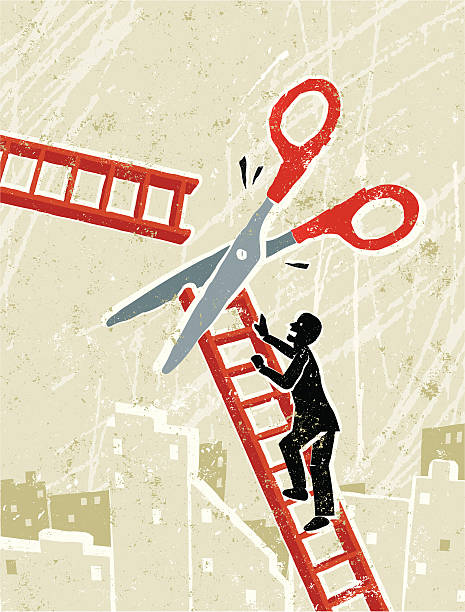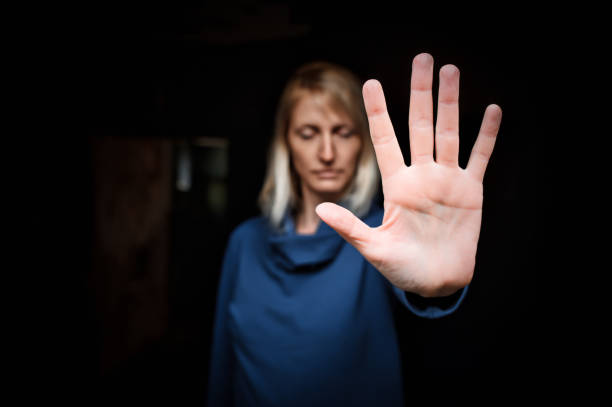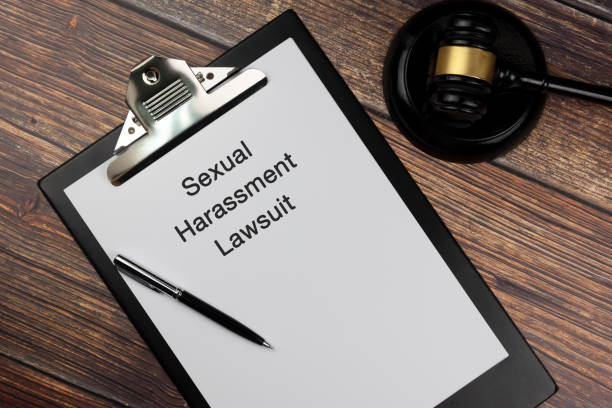
The conversation around what industries and professions who continue to sexual harass must continue. What’s has to happen is more action must be taken by employers to stamp out this repeated appalling behaviour.
Sexual Harassment and the Legal Profession Why??
You take a group of highly educated people and put them together, and this is what you get. Why?
Despite its honorable image, the Law Profession is not immune from sexual harassment and a recent global study completed by the International Bar Association that surveyed almost 7,000 legal professionals from 135 countries found sexual harassment was common with 1 in 3 female respondents and 1 in 14 male respondents experiencing sexual harassment at work.4
The results of this study are seemingly at odds with the upstanding reputation that the legal profession has long enjoyed and many are suggesting the recent allegations of long-running sexual harassment by High Court Justice Dyson Hayden. Justice Hayden acted as a sexual harassment lawyer on occasion before he was appointed to the bench. What is happening here could be the “Me Too” moment vulnerable employees in the Legal Profession have been waiting for.
The Hollywood analogy is pertinent as there are many similarities to the revelations leveled at Harvey Weinstein, long-running stories of sexual harassment, held as an open secret to those in the know. In Heydon’s case, it has been reported that 2 other High Court Justices were told of the alleged harassment and stood idly by whilst Heydon used his power to take advantage of powerless employees. Leaving many disillusioned and even forcing some to abandon the legal profession altogether.

Unfortunately, Heydon is not alone and in the wake of the allegations against him other unsavory reports of sexual harassment have been reported in the media, including that of a senior lawyer at a top-tier firm that is banned from one-on-one meetings due to his history of harassment a recent article in The Guardian.5
Complaints of Harassment in legal workplaces
Complaints of harassment in legal workplaces have been circulating for some time, including revelations made to the national inquiry into sexual harassment in Australian workplaces launched in 2018 by Australia’s Sex Discrimination Commissioner, Kate Jenkins, where a whistleblower told of a senior partner at a law firm sexually harassing younger female employees by forcing them to watch pornography and “rating” them on their looks with other male staff at the firm.
Shockingly 61 per cent — of female respondents to recent survey of more than 2,300 lawyers by the Victorian Legal Services Board, revealed almost two-thirds — (and just over one in 10 men) had been sexually harassed.6 The same study also found that perpetrators of sexual harassment were predominantly male and were often senior to their victims and most concerning that 81 per cent of victims did not report the harassment.
A similar survey conducted by the Women Lawyers Association of NSW (WLANSW) found that more than 70 per cent of female lawyers surveyed in NSW reported being sexually harassed in the workplace.7 Unwanted behavior’s included touching, objectification, repeated advances in the workplace or at social events, and even being criticized for not going to a strip club after a work function. The study found that direct managers accounted for 50% of the harassment cases and concerningly there were also reports of Human Resources Departments encouraging complainants to “not rock the boat”.
How can this behaviour be allowed to occur
The obvious question these results raise is, how can this behaviour be allowed to occur in a profession where fighting for justice is its raison d’être? In the instance it wasn’t obvious to legal employees that sexual harassment is socially unacceptable, there are specific rules in place which whereby sexual harassment by lawyers can constitute professional misconduct, as clearly detailed in Rule 42 of the Legal Profession Uniform Law Australian Solicitors’ Conduct Rules 2015 and its equivalent for Barristers Rule 123 of the Legal Profession Uniform Conduct (Barristers) Rules 2015.
In a recent article on the topic of sexual harassment in the legal profession, Ms Fiona McLeod, former head of the Australian Bar Association and Law Council of Australia explained that there exists a “culture of silence”, which she stated is a feature of the legal profession is often upheld by some women’s perception that the behaviour is not serious enough to act on, because they lack confidence in the system to deal with it, or they fear reprisal like unfair dismissal if they speak out.
The other issue that allows this harassment to occur in workplaces is the power inequality in the male dominated Legal Industry. Dr Joe McIntyre, a senior law lecturer at the University of South Australia, provided the following insights in a series of poignant tweets on the topic:8 “The foundational sin in the legal profession is that it remains a domain dependant upon personal relationships and hierarchical power. This leaves it exposed to embed gender inequality & abuse BUT also general exploitation.

Dependent upon personal relationships
It is significant that the further up the hierarchy of legal practice one climbs, the more dependent upon personal relationships for referrals, briefs, appointments one becomes. And this is where the gender imbalance becomes particularly odious So 50% of women have been sexually abused. Women are systemically underrepresented in the senior profession. This is no coincidence. Men in positions in power are operating with a sense of practical immunity, because if the women speak out they know their career is dust”
The aligns with the WLANSW report that found many women simply didn’t report the abuse because they feared it would adversely impact their career. The extensive use of confidentiality clauses in employment contracts and settlement deeds also add to the lack of transparency on the results of any investigations of transgressions and most importantly whether or not appropriate steps are also being taken to ensure other employees are protected from potential future transgressions.
To the topic of what can be done, there are various existing protections already existing in workplace law, ranging from General Protections in the Fair Work Act, to the Sexual Discrimination Act, Occupational Health and Safety Legislation and Human Rights legislation, however thus far these have been of little use to employees in the legal profession who have been unable or unwilling to utilize these workplace rights. As part of its findings, the Victorian Legal Services Board (VLSB) found that “a significant number of legal workplaces did not have documented sexual harassment policies, and that specific workplace training and education to prevent sexual harassment is rare”.
Expect better training
However whilst the VLSB acknowledged that this situation would be relatively easily addressed it is unrealistic to expect some basic training and policies would be able to address the underlying culture and structures that enable this behaviour to continue.
The VLSB report also set the legal profession some notable goals to address the harassment issue which included:
- Building a culture which does not tolerate sexual harassment and encourages people to speak up
- Introduce mechanisms that reduce the potential for sexual harassment via abuses of power
- Interrupt structures that protect open secrets and support serial harassers
Whilst they encouraged industry leaders to work on these issues, they also didn’t rule out taking regulatory action to address sexual harassment, focusing not just on the individual but on legal practices that fail to adequately manage sexual harassment within their workplace. In its submission to the Sexual Discrimination Commissioners Workplace Enquiry, WLANSW made a number of recommendations including that employers impose a duty on employees or “bystanders” who witness misconduct to report it. The report author Larissa Andelman said “People who are in leadership positions should have an obligation to report wrongdoing where they see it. The conduct we walk past is the conduct that we condone.” This is such a powerful statement. We have to be disruptors, not put up with the status quo, more worrying about careers, what will others think. More worried about billable hours.

Young females in the legal profession is more likely to be sexually harassed than not
Unfortunately, a young female in the legal profession is more likely to be sexually harassed than not and whilst the allegations leveled as Dyson Hayden have focused a spotlight on the cultural issues that have allowed this unacceptable workplace behaviour to continue unabated, there is still significant work required to address this issue. And so we find our way back to Hollywood and the powerful lesson that the “Me Too” movement has provided to us all. Individually we may struggle to be heard, but if enough of us speak out then we can bring an end to the sexual harassment.
Conclusion
A Whole New Approach P/L , we are not lawyers, we are workplace advisors, as you can see from this article amongst others on this web site, we know what we are doing. We have been “hearing you” since 2004, no conflict of interest here, get your justice, get your compensation, get what your entitled to, make the call today 1800 333 666 explore your options, no obligation, its all confidential. Seeking a stop sexual harassment order, (F72 at the FWC) forced to resign due to harassment, subject to adverse action because you complained, ring today.
Free call 1800 333 666 , prompt confidential advice.
BIBLIOGRAPHY:
1 ABC News 2018, Fact check: Has the rate of casualisation in the workforce remained steady for the last 20 years?, ABC News, retrieved 10 July 2020 <https://www.abc.net.au/news/2018-04-17/fact-check-casualisation/9654334>.
2 Fair Work Ombudsman 2020, Casual Employees, Fair Work Ombudsman, retrieved 10 July 2020 <https://www.fairwork.gov.au/employee-entitlements/types-of-employees/casual-part-time-and-full-time/casual-employees>.
3 The Financial Review 2020, Workforce casualisation: the discussion we have been avoiding, retrieved 10 July 2020 <http://www.brw.com.au/p/leadership/workforce_casualisation_the_discussion_e6DEzUdUr5NFkzQCaEjhOJ>.
4 International Bar Association 2018, Us Too? Bullying and Sexual Harassment in the Legal Profession, retrieved 11 July 2020 <https://www.ibanet.org/bullying-and-sexual-harassment.aspx>.
5 The Guardian 2020, ‘Nobody stood up for me’: young lawyers say harassment rife in Australian legal profession, retrieved 11 July 2020 <https://www.theguardian.com/law/2020/jun/26/nobody-stood-up-for-me-young-lawyers-say-harassment-rife-in-australian-legal-profession>.
6 Victorian Legal Services Board and Commissioner 2020, Sexual harassment, retrieved 11 July 2020 <https://lsbc.vic.gov.au/lawyers/practising-law/sexual-harassment>.
7 ABC News 2019, Sexual harassment of women ride in Australian legal profession, survey finds, retrieved 11 July 2020 <https://www.abc.net.au/news/2019-03-08/70-per-cent-female-lawyers-report-sexual-harassment-survey-finds/10880632>.
8 https://twitter.com/Dr_Joe_McIntyre/status/1275264881915117571













